Sorting Feedback into Truth, Trash & Treasure
We’ve all been there. Someone gives us feedback (often unsolicited), and we need to decide what to do with it. It’d be great if all the feedback was positive, but when it’s not, there’s a simple construct that can help us sort and process. Let’s explore this construct – the truth, trash and treasure principles.
For most of us, feedback affirms things we have already guessed to be true like the event was a success. However, feedback also reveals what may be unknown to us and clearly visible to those around us.
When I first moved to Madison, several people gave me the feedback that I was really intimidating to talk to. I was floored and didn’t know what to do with that information. That’s where the truth, trash, and treasure principle helped me figure out if their feedback was something I should pay attention to or if it was something I could ignore.
Truth
The first question we need to ask about the feedback we receive is: what’s true about this statement. From a sheer behavior perspective, I could identify things I was doing that could be perceived as intimidating.
For example, when I made comments that came across as authoritative and inflexible, and I said it confidently, I was intimidating. People didn’t feel like they could give their opinion because I had my mind made up. My behaviors shut conversation down. There was truth in the feedback.
Trash
The second feedback question that helps us clarify the feedback is: what about this statement is trash – is not true? As I examined people’s feedback, I realized that their definition of intimidating didn’t include unkind, which is part of how I define intimidating.
Those who gave me feedback didn’t view me as mean or threatening. They viewed me as overwhelming and opinionated. By separating what was true and what was trash, I found actionable ways of adapting my behavior to be less intimidating.
In this case, I learned to ask more questions before giving my opinion. I learned to say, “Here’s the situation. What do you think we should do?” Or, “I was thinking about doing this, does that work for you?” Those were small tweaks to my actions that have made a significant difference in how people perceived me.
Treasure
People’s feedback about what it was like to be in a room with me was something I’ve learned to treasure. Feedback is a gift. It’s not always nicely packaged or beautiful, but it’s a gift given out of graciousness and generosity.
I learned I impacted people negatively and shut them down, which was not my intention. Their feedback was a gift that let me find ways of being more effective with others, something I wouldn’t have figured out on my own.
Now when feedback comes my way, I use truth, trash and treasure principles to learn from feedback. What about you? What’s true about the feedback you’ve received recently? What’s trash? What treasure is waiting to be found?
Keynote speaker, trainer, and consultant, Sarah Gibson, helps organizations leverage the power of communication, teamwork, and diversity to improve engagement and transform teams. To buy her book or inquire about her speaking programs, please visit www.sarahjgibson.com.



